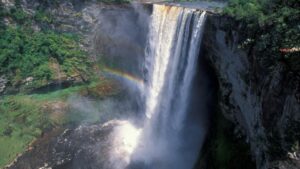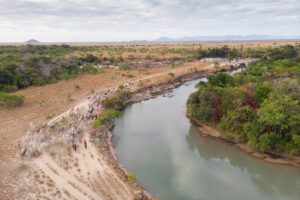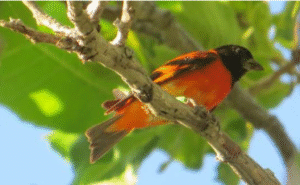Eco lodges in Guyana are a gateway to one of South America’s last great wildernesses. Nestled within the untouched landscapes of the Rupununi region, these eco-friendly accommodations offer more than just a place to stay; they provide immersive experiences that connect travellers with nature, culture, and conservation.
The Rupununi, located in southern Guyana, is home to sprawling savannahs, dense rainforests, and an abundance of wildlife. It’s also a region deeply intertwined with indigenous heritage, where eco-tourism plays a vital role in supporting local communities. For those interested in sustainable travel in Guyana, the Rupununi is a must-visit.
Let’s explore some of the top eco-lodges in the Rupununi that exemplify responsible tourism, offer rich wildlife encounters, and showcase the best of eco-tourism in Guyana.
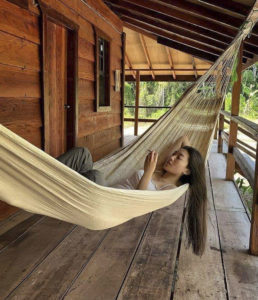
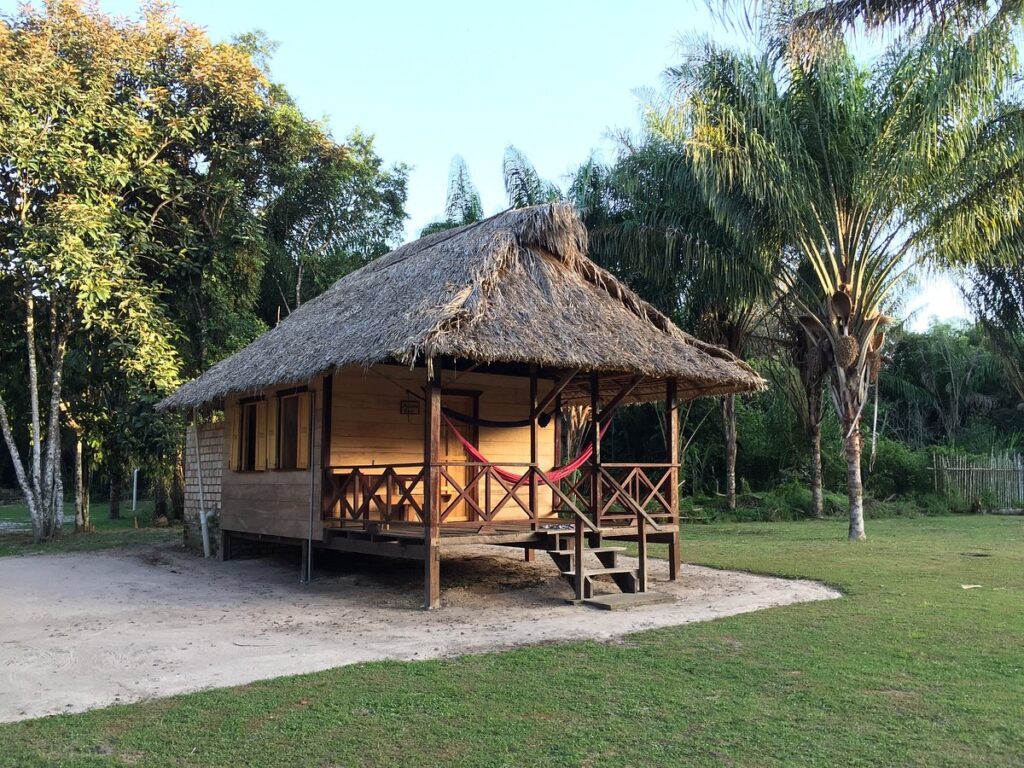
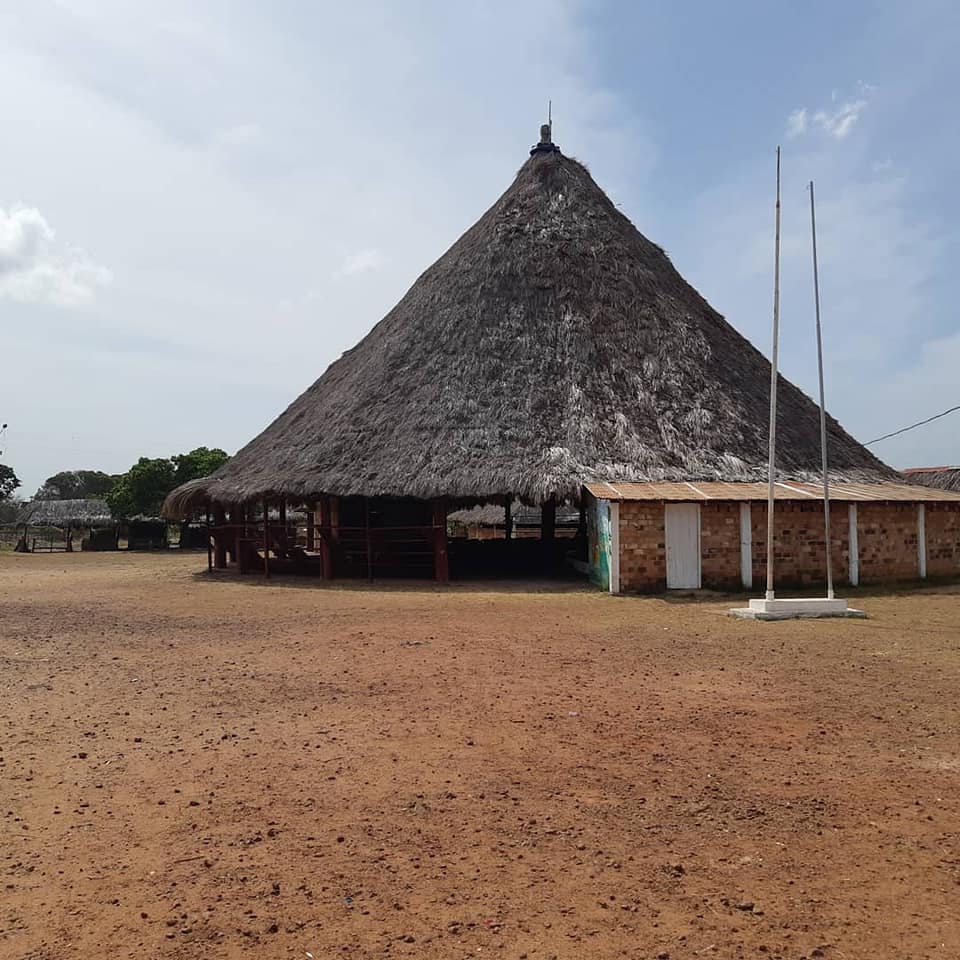
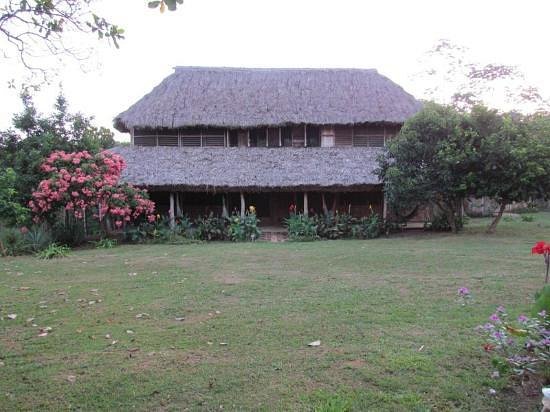
1. Karanambu Lodge
Karanambu Lodge offers guests a serene experience on the banks of the Rupununi River. Famous for its role in conservation, the lodge was founded by renowned environmentalist Diane McTurk. Accommodations include cozy, clay-brick cottages with open verandas that allow guests to immerse themselves in the sights and sounds of the surrounding wildlife. Key experiences include wildlife spotting excursions to observe giant river otters, capybaras, and numerous bird species, especially during serene river trips at sunrise or sunset.
2. Rewa Eco-Lodge
Rewa Eco-Lodge is a remote lodge located at the confluence of the Rewa and Rupununi rivers. Built and managed entirely by the local Makushi community, this lodge offers guests an authentic rainforest experience, free from modern distractions such as Wi-Fi. Activities include guided hikes, canoe trips, and wildlife spotting, notably opportunities to see rare species such as the harpy eagle. Visitors are treated to traditional meals crafted from local ingredients, further enhancing the immersive cultural experience.
3. Surama Eco-Lodge
Operated by residents of Surama Village, Surama Eco-Lodge provides visitors with a deep cultural connection to the community and its traditional way of life. Set between savannah and rainforest, the lodge facilitates authentic experiences, including guided hikes to Surama Mountain, nature walks highlighting medicinal plants, and evening cultural interactions such as storytelling and traditional music. Surama Eco-Lodge stands out for fostering genuine relationships between guests and villagers.
4. Rock View Lodge
Situated at the intersection of the Pakaraima foothills and the Rupununi savannah, Rock View Lodge is known for its artistic and cultural ambience. The lodge features distinct architecture complemented by local artworks and lush gardens. Guests can partake in creative workshops, such as watercolor painting classes, and enjoy fresh garden-to-table meals featuring traditional dishes. Rock View provides an ideal environment for relaxation, cultural exploration, and inspiration.
5. Dadanawa Ranch
One of Guyana’s oldest and largest cattle ranches, Dadanawa Ranch has transformed into an eco-tourism destination emphasizing conservation and scientific research. Located in the southern Rupununi, this remote, off-grid ranch offers unique experiences such as jaguar tracking, giant anteater sightings, and horseback exploration of the vast savannah landscapes. Collaborations with researchers and NGOs underscore the ranch’s commitment to wildlife conservation and sustainable land management.
6. Caiman House and Yupukari Lodge
Located in the village of Yupukari, Caiman House serves as both a guest lodge and a research center. The lodge’s standout feature is its black caiman monitoring program, where guests can join researchers in night-time tagging excursions.
In addition to wildlife studies, the lodge supports local educational initiatives and encourages interaction with the village community. The nearby river systems and forests also offer excellent canoeing, hiking, and birdwatching opportunities. These features make it one of the most innovative eco lodges in Rupununi, especially for travelers passionate about conservation science.
Caiman House in Yupukari village uniquely combines accommodation with active wildlife research and conservation. Known particularly for its black caiman monitoring program, the lodge offers guests the opportunity to join nightly scientific excursions. Additionally, visitors can engage with the local community through educational programs and cultural interactions. Nearby rivers and forests provide excellent opportunities for canoeing, hiking, and birdwatching, making it an attractive choice for conservation enthusiasts.
Why Choose Eco Lodges in the Rupununi?
Choosing to stay at an eco-lodge in the Rupununi region supports responsible tourism practices, emphasizing environmental sustainability, cultural preservation, and community empowerment. The lodges prioritize:
- Renewable energy use, waste minimization, and sustainable sourcing.
- Employment and educational opportunities for local communities.
- Active participation in wildlife conservation, research, and habitat protection.
Eco lodges in the Rupununi offer travelers meaningful, immersive experiences that align with increasing global awareness around sustainable tourism.
Planning Your Eco Adventure
Travel to the Rupununi typically begins with flights from Georgetown to Lethem, followed by ground or river transportation to individual lodges. Eco lodges usually offer comprehensive packages, including accommodations, meals, guided tours, and cultural activities.
Advance booking is recommended, along with preparation for immersive cultural and nature-based activities. By choosing an eco lodge in Guyana’s Rupununi region, travelers actively support crucial conservation efforts and sustainable community development.
Discover the unique blend of wildlife, culture, and conservation in Guyana’s Rupununi region—book your eco lodge stay today and contribute positively to preserving this wild and welcoming landscape.
Ready to explore the wild heart of South America? Book your eco-lodge experience in the Rupununi today and be part of the conservation journey.

